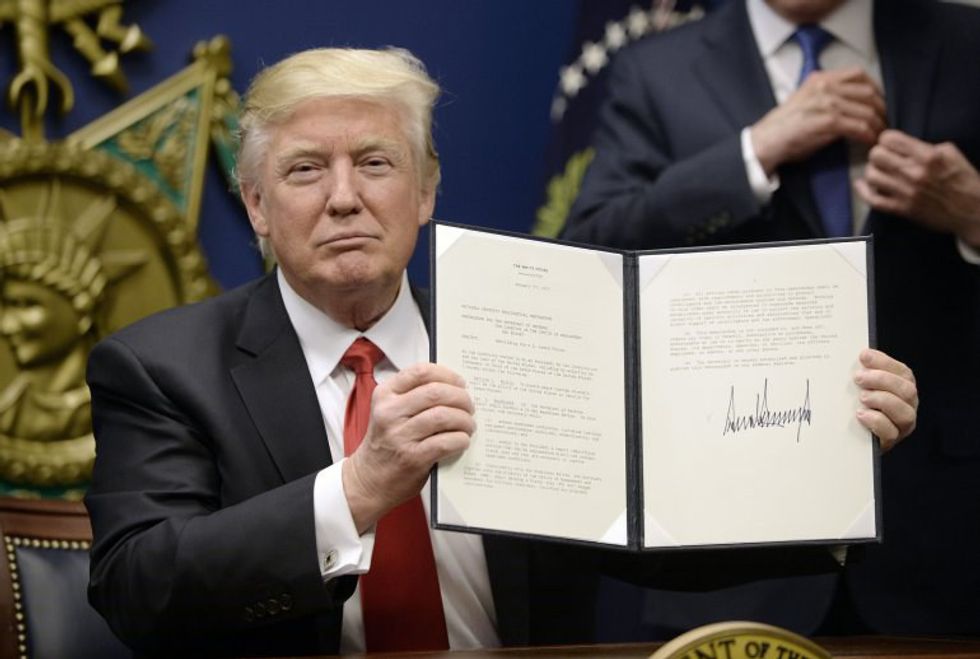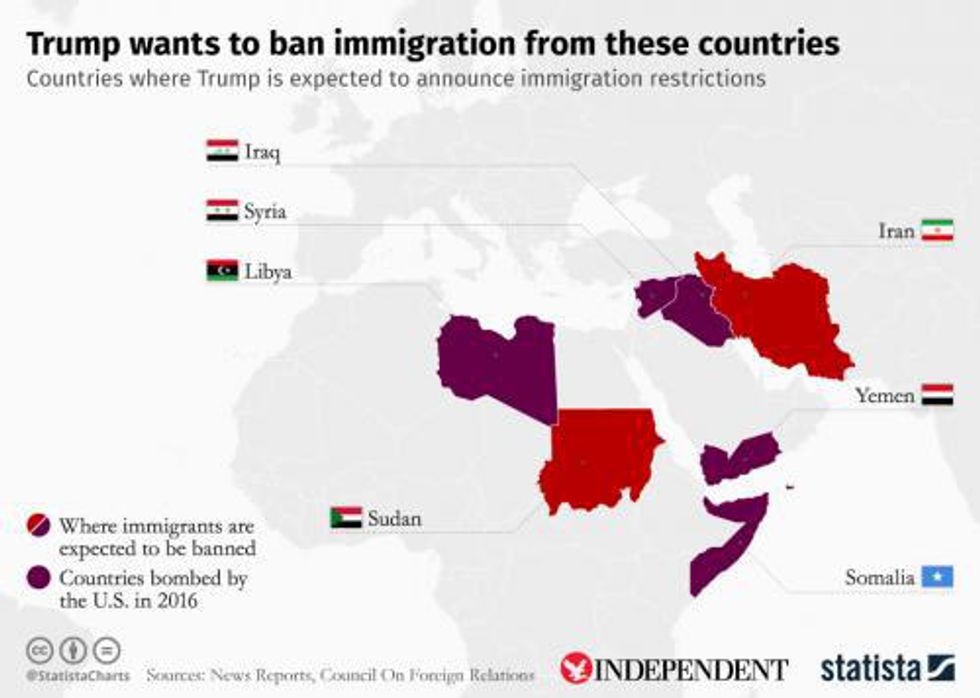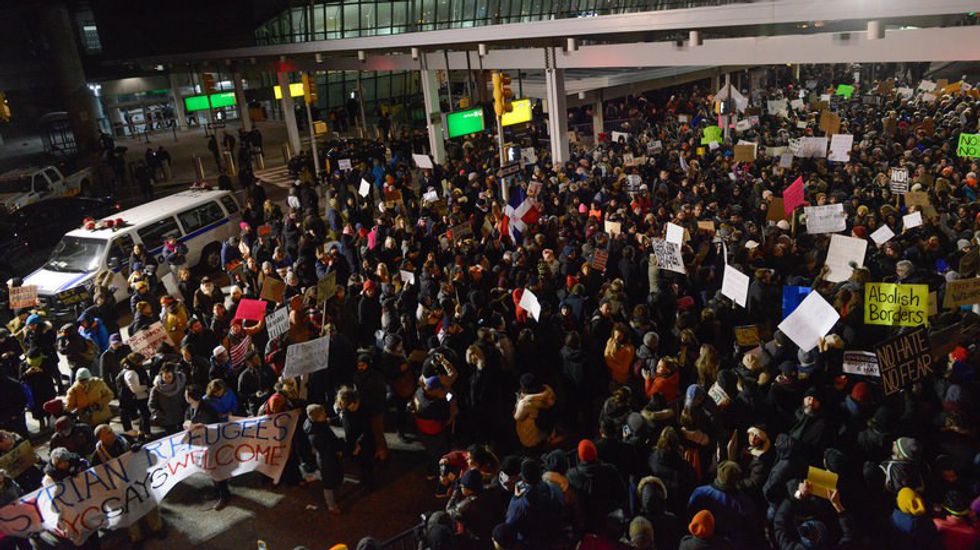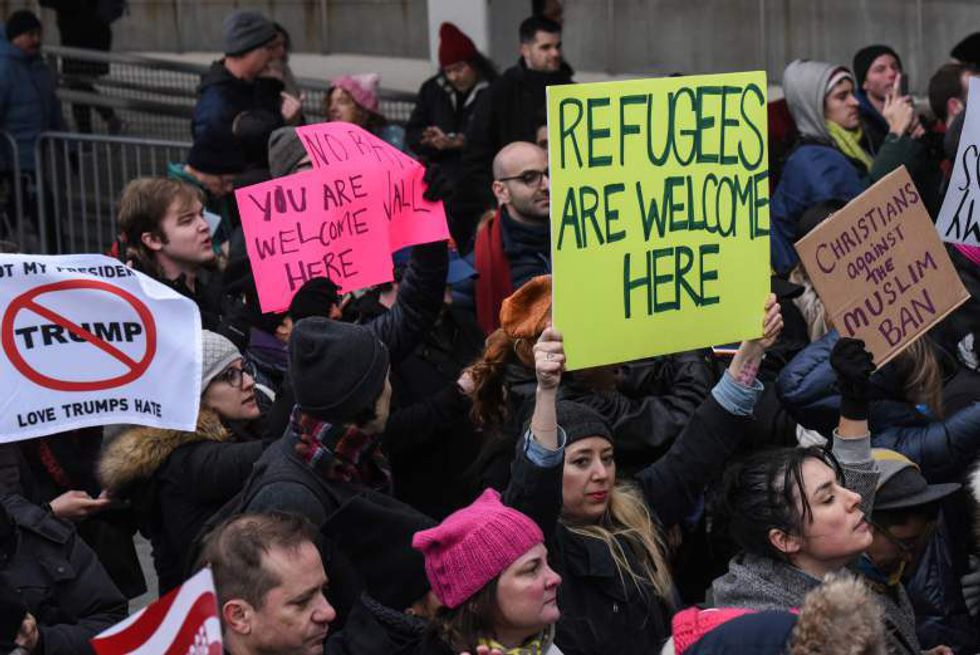It's safe to say that President Trump has caused quite a stir within his first week in office. Signing executive orders, meeting with foreign leaders and continuing his argument with the media. However, one executive order is causing a stir amongst Americans and those abroad. On Friday, Donald Trump signed an executive order that restricts immigration from citizens of seven countries in the Middle East and bars Syrian refugees from entering the country.
At this point, our eyes have been inundated with images of protests from airports around the country. Stories of those being detained for hours finally being released, and lawyers working pro-bono to help those coming into the country. So, what exactly is involved in the executive order and what has transpired since President Trump signed it?
President Donald Trump signed an executive order in the Hall of Heroes at the Department of Defense on Friday, January 27th which set in motion an immediate ban on individuals from seven Muslim countries, current refugees seeking citizenship for 120 days, and all Syrian refugees for an indefinite amount of time. What many news outlets are reporting is that Trump signed this executive order because, "he was enacting strict new measures to prevent domestic terror attacks, [but] there were few within his government who knew exactly what he meant." A few hours later it was revealed that individuals from seven Muslim countries were effectively restricted from entry into the United States.
The seven countries include Iraq, Iran, Somalia, Sudan, Syria, Libya, and Yemen. These citizens cannot enter the country on any visa which appears to include Green Card status. The Green Card indicates that one is a permanent member of the United States but who, as a result of the executive order, "may have been traveling overseas to visit family or for work—though their applications will be considered on a case-by-case basis, a senior administration official said Saturday." This information within the executive order made it difficult for many Border Patrol agents who were faced with many refugees arriving at airports around the country. Many agents were referring refugees and citizens of the seven Muslim countries to President Trump.
What transpired on Saturday was a wave of mass protests at airports around the country, including John F. Kennedy International Airport in the photo above. Shouts could be heard in and around the arrivals gate calling for no ban. Taxi drivers went on strike Saturday night in defiance to the ban imposed by President Trump. One such incident led to an overturn on a portion of the ban last night when Hameed
According to The New York Times, a Brooklyn judge, "blocked part of the president’s actions, preventing the government from deporting some arrivals who found themselves ensnared by the presidential order. But it stopped short of letting them into the country or issuing a broader ruling on the constitutionality of Mr. Trump’s actions." It is a small victory, but one that only adds another layer to this already complicated executive order.
Following the signing of the executive order members of the Department of Homeland Security stated that the order did not apply to Green Card holders, but this notion was overruled by the White House. This, if anything else, has caused a stir amongst Americans as an abuse of power from the White House and Trump administration. CNN reported that this notion was overruled overnight, "The White House overruled that guidance overnight, according to officials familiar with the rollout. That order came from the President's inner circle, led by Stephen Miller and Steve Bannon. Their decision held that, on a case by case basis, DHS could allow green card holders to enter the US. " It is unclear what will happen in the coming days as many more airport protests are planned.
However, Trump's take on this? "It's working out very nicely," Trump told reporters. "You see it at the airports. You see it all over. It's working out very nicely and we're going to have a very, very strict ban, and we're going to have extreme vetting, which we should have had in this country for many years." As this progresses, stay informed and stay open to other ideas and opinions. The worst thing we can do now is to fight amongst each other.























